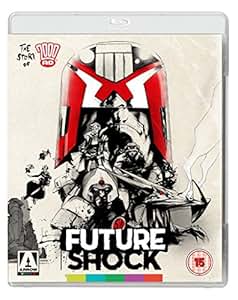Last
year, I read and acted upon, the advice given by Marie Kondo in her book The
Life-Changing Magic of Tidying. This
involved learning how to fold clothes so that it was easier to store and access
them and disposing of a lot of things that I had been hanging onto for no good
reason. Though there has been a slackening in my tidying routine, I still know
the whereabouts of everything I own. Ask me for a pack of cards or a paperclip
and I will find it for you next to immediately. This time last year I would
have been pawing my way through a drawer full of wires, coins, pens and
post-its for up to five minutes before I found either of the above items.
A
recent holiday prompted another clear-out but this time it was my head that I
tidied up. While I was away, I realised
that one of the main reasons I find breaks so relaxing and stimulating is that
as well as a change of scene, I have a change of routine. As I was abroad, I wasn’t able to buy my
preferred national newspaper and as there was so much to see in my new
surroundings, I didn’t feel the need to look at the news websites I usually
checked twice or three times a day. I didn’t listen to talk radio either, save
for some programmes on BBC Radio 4 while driving but none of those shows were
discursive or centred on current affairs.
They were gardening programmes and documentaries.
Those
hours I usually spent perusing newspapers and websites and listening to people
talk about politics, I devoted to reading books and when I wasn’t reading books
I talked to my wife or looked around me. I noticed that reading books was
easier without the temptation of the internet, that I was finding it easier to
settle into a book, and that I was listening more closely to my wife and
noticing more of what was going on in front of me or around me.
This was still the case when we
got home and I continued the same regime. Sitting at the kitchen table, with the
radio off for once and no newspaper or i-pad in front of me, I noticed how the
petunias in the pot in the corner looked like old-fashioned hard-boiled ribbon
sweets. I also stared long and hard at the dog’s noble greyhound face. Walking
in the park, I saw a heron fighting with two seagulls.
As my thoughts were no longer as swamped with
sparkly bits of information, I started to think about my friends more often and
started to text and to ring them. I
found myself staring out the window or at the wall and thinking more than ever
about myself and my life, my family, my friends, and what was close to me. My sense of my priorities sharpened: I
started to do thing I had been putting off: booking a check-up with the doctor,
inviting friends over for dinner. I had
a series of epiphanies and, for the first time in years, I wrote a poem. I read
books but more deeply than in years because they weren’t competing with the
fast food of the net with their accompanying illustrative photographs and video
clips.
I started to enjoy that feeling
of being ‘almost bored’, just looking and listening in silence without the
endless talk, the burbling adverts, the scrolling screen, the dyspeptic opinion
pieces and repetitive sports journalism. And I realised how hooked I had become
on ephemera, how I had got to know the names of famous people despite never
having heard their music or seen them on television.
It’s
now two months since I reduced my media intake and though the initial
excitement of the new regime has ebbed away, my sense of serenity has remained.


